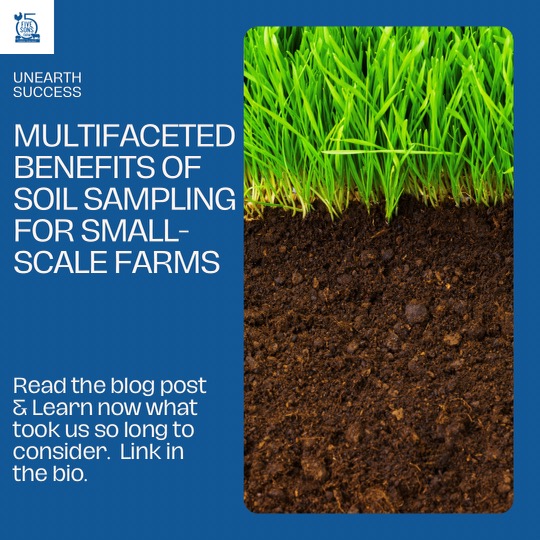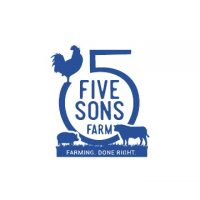In the world of agriculture, where every inch of pasture land holds potential, small-scale farmers often face the challenge of maximizing yields with limited resources. One indispensable tool that can revolutionize their progress is soil sampling. Beyond the obvious advantages of understanding soil health, this practice offers a spectrum of benefits, which are largely overlooked.
- Precision Agriculture Unleased:
Soil sampling empowers small-scale farmers with precise information about the nutrient composition of their soil. Armed with this knowledge, farmers can adopt targeted and efficient fertilization strategies, avoiding over-application and reducing costs. The result? Optimal plant growth of grasses. Ensuring our every investment in resources counts.
2. Cost-Effective Resource management:
Small-scale farmers often operate on tight budgets, making every dollar and resource precious. Soil sampling allows for customized, site-specific recommendations, enabling farmers to allocate resources effectively. By tailoring inputs to the unique needs of their soil, farmers can minimize waste and make the most of their financial resources.
3. Environmental Stewardship:
Sustainable agriculture is no longer a buzzword: it’s a necessity. Soil sampling plays a pivotal role in promoting environmentally conscious farming practices. By preventing unnecessary use of fertilizers and chemicals, farmers contribute to soil conservation, and reduce the risk of runoff, safeguarding nearby water sources and ecosystems.
4. Early Detection of Soil Issues:
Small-scale farmers often lack the infrastructure for extensive monitoring. Soil sampling acts as an early warning system, allowing farmers to identify and address soil issues before they escalate. Whether it’s pH imbalances, nutrient deficiencies, or soil structure problems, early detection helps prevent deterioration of pasture health and ensures long-term fertility.
5. Tailored Pasture Grass Selection:
Every soil has its unique characteristics, influencing the success of different native, or non-native, pasture grasses. Soil sampling provides small-scale farmers with insights into which grasses are best suited for their specific conditions. Armed with this knowledge, farmers can make informed decisions about pasture seeding, increasing the likelihood of a successful grazing program.
6. Improved Grass Quality:
Beyond quantity, soil health directly impacts the quality of pasture grasses. By optimizing nutrient levels, pH, and other crucial factors, farmers can enhance the nutritional content and overall quality of their pasture health. This not only satisfies consumer demand for high-quality forage but can also open doors to premium markets and increase profitability.
7. Enhanced Risk Management:
Agriculture is inherently susceptible to uncertainties, from weather fluctuations to pest outbreaks. Soil sampling contributes to robust risk management by creating a foundation of knowledge. Farmers can adjust their practices based on accurate soil data, mitigating the impact of unpredictable factors and building resilience in the face of adversity.
In conclusion, the benefits of soil sampling for small-scale farms extend far beyond the surface. We only conducted our first soil samples on the farm last season. I realized from research and testing results how crucial soil samples were to the small-scale farm. How silly I felt for disregarding such an obvious factor in successful farming. I decided that going forward we would prioritize our soil and samples would be a tactic utilized to maximize our efforts. I hope this blog has helped convince you that the practice is a game-changer for those who seek to maximize yields while minimizing their ecological footprint. As small-scale farmers navigate the challenges of modern agriculture, embracing the power of soil sampling can pave the way for sustainable success.
Best Regards,
Nick Jones


